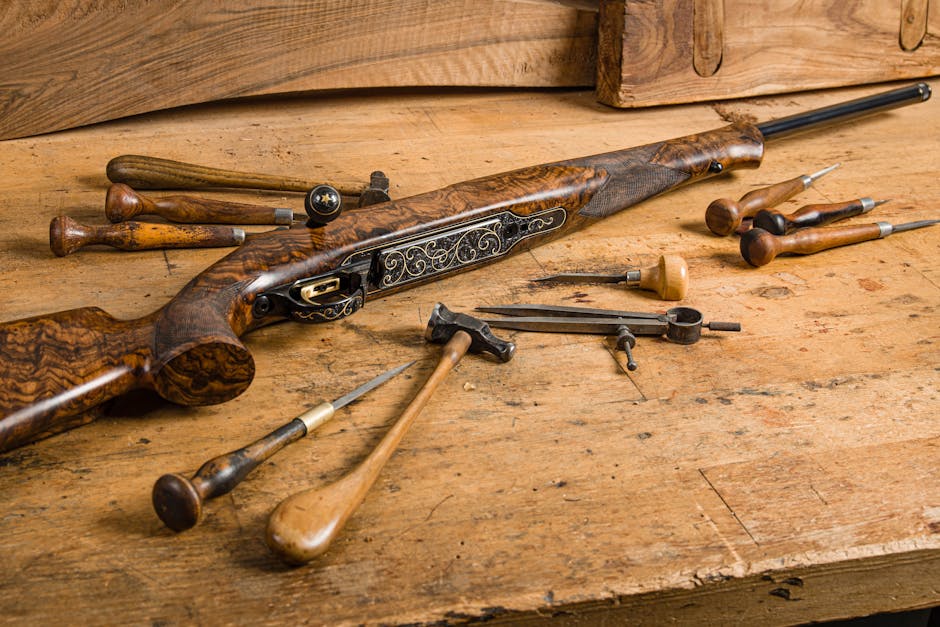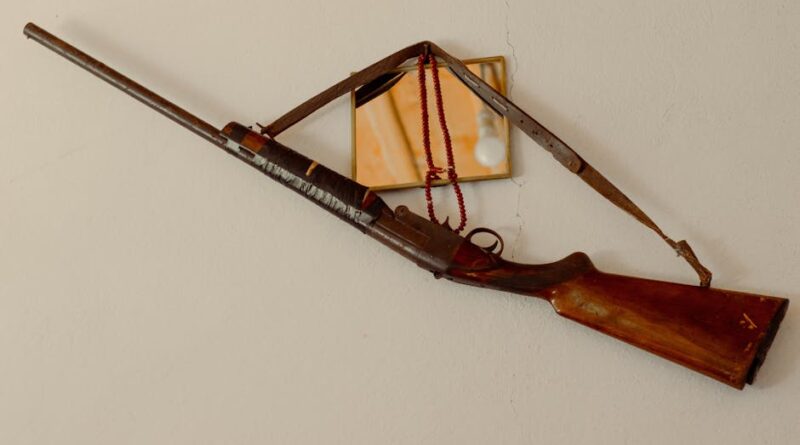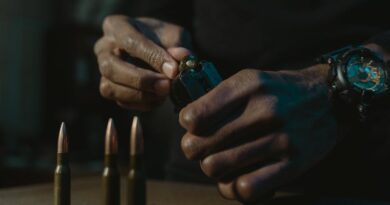Exploring the Intriguing World of Antique Firearms
Antique firearms hold a unique allure for many enthusiasts, collectors, and history buffs. These historical weapons not only serve as tangible connections to the past but also require a delicate touch when it comes to handling and maintenance. Whether you’re a seasoned collector or a novice enthusiast, understanding how to properly handle antique firearms is crucial for both safety and preservation.
Join us as we delve into the intricacies of handling antique firearms, exploring their historical significance, maintenance techniques, legal considerations, and more. From Civil War muskets to vintage revolvers, each antique firearm carries a story waiting to be unraveled.
The Historical Significance of Antique Firearms

By Jochen Anschütz via Pexels
Antique firearms have played a pivotal role in shaping the course of history. From muskets used in pivotal battles to ornate dueling pistols carried by nobility, these weapons have left an indelible mark on the past. Understanding the historical context of antique firearms can provide valuable insights into their design, construction, and usage.
For example, the evolution of firearm technology from matchlocks to flintlocks and eventually to percussion cap mechanisms showcases the ingenuity of gunsmiths throughout history. By studying the development of antique firearms, enthusiasts can gain a deeper appreciation for the craftsmanship and innovation that went into creating these timeless pieces.
Handling Antique Firearms Safely
When it comes to handling antique firearms, safety should always be the top priority. These weapons may be centuries old, but they can still pose a danger if mishandled. Here are some essential tips for safely handling antique firearms:
1. Always treat the firearm as if it were loaded, even if you believe it to be unloaded. Never point the muzzle at anything you are not willing to destroy.
2. Keep your finger off the trigger until you are ready to shoot. This helps prevent accidental discharges.
3. Store antique firearms in a secure location, away from children and unauthorized individuals.
4. Regularly inspect and maintain antique firearms to ensure they are in proper working condition.
By following these safety guidelines, enthusiasts can enjoy their antique firearms responsibly while minimizing the risk of accidents or injuries.
Legal Considerations for Antique Firearms
Before purchasing or handling antique firearms, it’s essential to be aware of the legal regulations that govern their ownership and use. In many jurisdictions, antique firearms are subject to specific laws and restrictions that differ from modern firearms.
For example, in the United States, the Antique Firearms Act exempts certain firearms manufactured before 1899 from the requirements of the Gun Control Act of 1968. However, it’s crucial to familiarize yourself with the specific regulations in your region to ensure compliance with all applicable laws.
Additionally, some antique firearms may require special permits or licenses for ownership or display. Consulting with local law enforcement or a legal expert can provide clarity on the legal requirements for owning and handling antique firearms in your area.
Maintaining Antique Firearms
Proper maintenance is key to preserving the beauty and functionality of antique firearms. These delicate pieces require gentle care to prevent rust, corrosion, and other forms of deterioration. Here are some maintenance tips for keeping antique firearms in pristine condition:
1. Clean the firearm regularly using a soft cloth and a mild gun cleaner to remove dirt and residue.
2. Store antique firearms in a climate-controlled environment to prevent exposure to humidity and temperature fluctuations.
3. Apply a light coat of gun oil to metal surfaces to protect against rust and corrosion.
4. Avoid using abrasive cleaning methods or harsh chemicals that could damage the firearm’s finish.
By following these maintenance guidelines, collectors can ensure that their antique firearms retain their historical and aesthetic value for generations to come.
Expert Opinions: Insights from Antique Firearms Enthusiasts
To delve deeper into the world of antique firearms, we reached out to seasoned collectors and enthusiasts for their insights on handling these historical treasures. Here’s what they had to say:
“Antique firearms are not just objects; they are tangible links to the past that tell stories of courage, innovation, and artistry. Handling these weapons with care and respect is a way of honoring the legacy of those who came before us.” – John, Antique Firearms Collector
“Maintaining antique firearms is a labor of love that requires patience, dedication, and attention to detail. By preserving these pieces of history, we ensure that their stories continue to captivate and inspire future generations.” – Sarah, Antique Firearms Enthusiast
These expert opinions highlight the passion and reverence that collectors and enthusiasts have for antique firearms, underscoring the importance of responsible handling and preservation.
Common Misconceptions about Antique Firearms
Despite their historical significance, antique firearms are often shrouded in misconceptions and myths. Let’s debunk some common misunderstandings surrounding these captivating weapons:
1. Myth: Antique firearms are not functional and cannot be fired.
Reality: While some antique firearms may be inoperable due to age or disrepair, many can still be fired safely with proper maintenance and care.
2. Myth: Antique firearms are not valuable and have no practical use.
Reality: Antique firearms hold both historical and monetary value, with some rare pieces fetching high prices at auctions and collectors’ markets.
By dispelling these misconceptions, we can gain a more accurate understanding of the significance and relevance of antique firearms in the modern world.
FAQs: Common Questions about Handling Antique Firearms
1. Can I legally own and display antique firearms in my home?
Yes, in many jurisdictions, owning and displaying antique firearms is legal, provided you comply with all relevant laws and regulations.
2. How should I store antique firearms to prevent damage and deterioration?
Store antique firearms in a dry, climate-controlled environment away from direct sunlight and moisture. Use gun safes or display cases to protect them from dust and debris.
3. Is it safe to fire antique firearms that are in working condition?
With proper inspection, maintenance, and supervision, firing antique firearms can be done safely. However, it’s essential to follow all safety guidelines and use appropriate ammunition for the specific firearm.
To Wrap Things Up
Handling antique firearms is a delicate art that requires a combination of knowledge, skill, and reverence for history. By understanding the historical significance, safety guidelines, legal considerations, and maintenance techniques associated with antique firearms, enthusiasts can enjoy these timeless treasures responsibly and respectfully.
Whether you’re a seasoned collector or a novice enthusiast, the world of antique firearms offers a wealth of opportunities for exploration and discovery. Embrace the past, honor the legacy, and savor the stories that antique firearms have to tell.




